Somerset Wildlife Trust rings owlet webcam stars
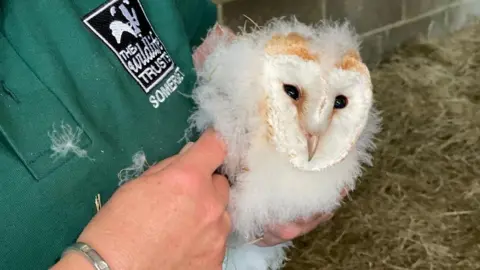 BBC
BBCFour fluffy owlets that have been watched by 150,000 households via a nest-cam this spring have been ringed.
Somerset Wildlife Trust installed a camera in their nest box in the Blackdown Hills to follow the progress of barn owl parents Finn and Orla.
The trust said owl habitats were under threat nationally but it hoped this mating pair would return year on year.
Identity tags were attached to the owlets during their siesta but they still managed to peck the bird ringers.
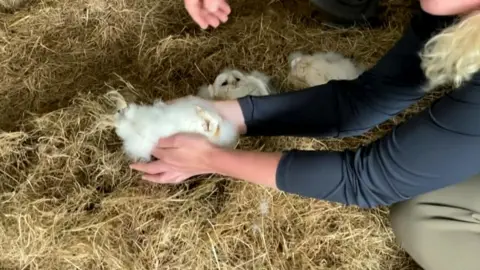
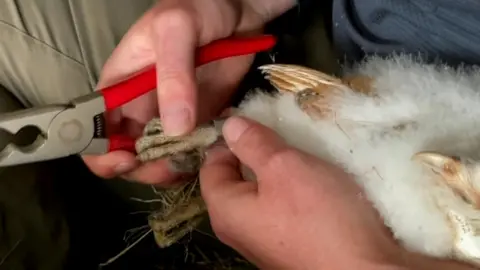
The nocturnal creatures mostly dozed while the identity rings were fixed in place.
Roger Dickey from Somerset Ornithological Society said they normally slept during the day and only woke in the evening when they started getting hungry.
"They've been well fed. They had a lot of meat on them and they're behaving exactly as they should be for their age.
"But I think it will be more like six weeks before they're off.
"They look particularly lazy and will be feeding off the adults until they [the adults] get really fed up with feeding them."
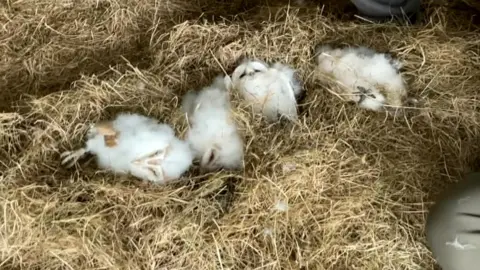
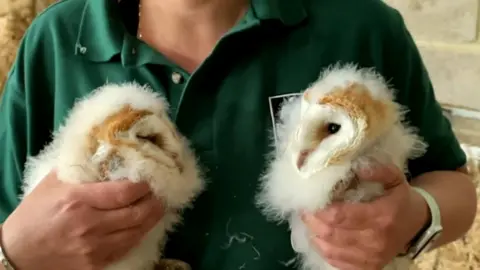
The ring and identification number is used to monitor and track the birds' progress.
Lara Winsloe, a trainee bird ringer, said the rings did not hamper the wearers in any way.
"The rings are designed to fully go round the leg - it's like wearing a wrist watch."
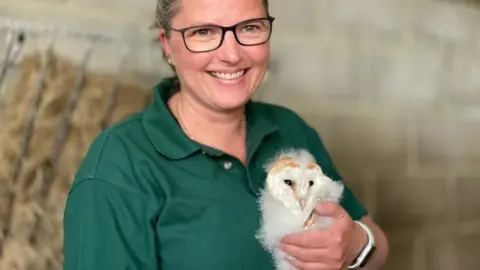
According to the Royal Society for the Protection of Birds there are about 4,000 breeding pairs of Barn Owls in the UK.
Kirby Everett, from the Somerset Wildlife Trust, said barn owls need grassland, hedgerows, trees and an "abundance of prey" but their habitats were being lost across the country.
"We know nationally that nature's really in trouble, habitats are diminishing, they're fragmenting and becoming separated so wildlife can't travel safely.
"But they [the owlets] have a fantastic spot here and I'm hoping they will come back year on year," she added.
